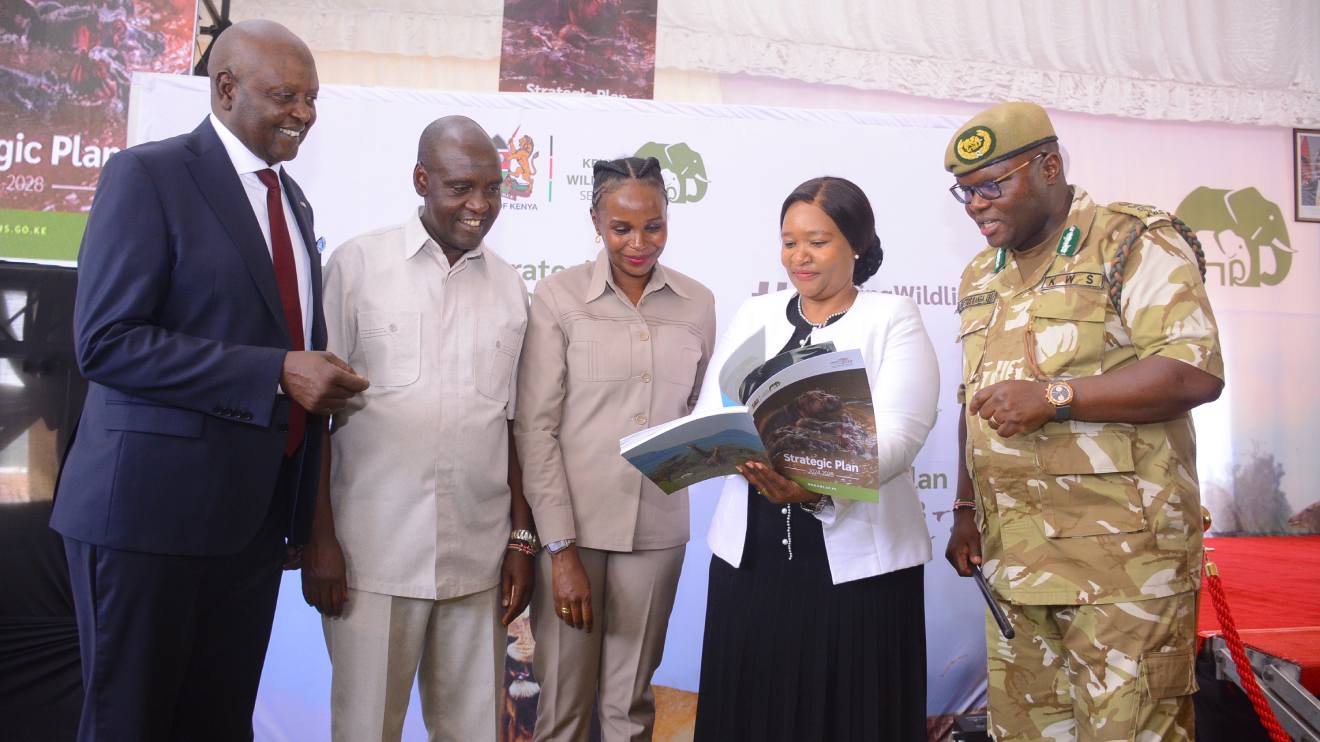Kenya Wildlife Service (KWS) is seeking to substantially boost its earnings from the wildlife economy in the next five years as it embraces new ways to attract more tourist cash to the key sector.
This has been captured in KWS's Strategic Plan for 2024-2028, which was unveiled on Monday, in which the service indicated that it was keen on adopting a modern approach to wildlife conservation in Kenya.
This comprehensive blueprint lays out a detailed roadmap that will guide KWS's efforts to amplify the wildlife economy, enhance biodiversity, and foster stronger partnerships with stakeholders.
At the heart of this strategy is the aim to unlock Kenya’s socio-economic potential through wildlife conservation, creating employment, improving livelihoods, and boosting the country’s foreign exchange earnings.
The plan establishes Kenya as a global leader in sustainable tourism and prioritises communities' direct benefits from these multipronged conservation efforts.
Read More
The new plan is structured around five key strategic goals that promise to boost wildlife populations, build resilient ecosystems, increase community involvement, and strengthen KWS as a robust organisation.
It also addresses challenges such as habitat degradation, human-wildlife conflict, and the illegal wildlife trade through adaptive management practices.
Speaking on the importance of the plan, Lt. General (Rtd) Walter Raria Koipaton, the Chairman of the KWS Board of Trustees, stated:
“The Board takes note of previous Strategic plans and revisions made signifying a shift in KWS’s mode of service delivery and passion to serve guided by the following core values; Professionalism, Accountability, Resilience, Integrity, Inclusivity and Innovation. Further, the re-alignment of the Service’s mission, policies and strategic objectives to its stated vision of ‘Thriving wildlife and healthy habitats for all, forever’ and new mission: ‘Sustainably conserve Kenya’s wildlife heritage and its habitats for the well-being of nature and people’. Kenyans have great expectations from KWS in executing the mandate of conserving and managing the country’s wildlife, and managing national parks and reserves for the benefit of nature and future generations.”
The Principal Secretary of the State Department for Wildlife, Silvia Museiya, expressed her confidence in the plan, stating:
“I am confident that the KWS’s strategic direction charted herein will lead to enhancement of the wildlife economy, reduction of biodiversity loss, improved community engagement and more access to benefits from wildlife conservation, improved strategies in the management of human-wildlife coexistence and increasing wildlife populations. The State Department for Wildlife commits to provide the requisite leadership, support in policy and regulatory framework, resource allocation in realization of the Government aspirations to the people of Kenya.”
KWS Director General Dr. Erustus Kanga further elaborated on the five-year plan, highlighting the issues the strategy seeks to address:
“The strategy development process resulted in the identification of five issues needing urgent redress. These were: declining wildlife population; loss, fragmentation and degradation of habitats and ecosystems; limited community and stakeholder participation; underexploited wildlife economy; and institutional capacity challenges. In response to the identified issues, the areas of focus will be flourishing wildlife populations and resilient ecosystems, enhanced community and stakeholder participation, expanded wildlife economy and a robust and high performing organisation.”
In her remarks, Hon. Rebecca Miano, the CS Ministry of Tourism and Wildlife, underlined the critical importance of implementing the plan:
“My Ministry remains committed to leading the way in implementing the policies and strategies embedded in the Plan. It is important to note that the wildlife and tourism sectors are integral to Kenya’s socio-economic development, contributing significantly to employment, foreign exchange earnings, and community livelihoods. We will ensure the policies foster a globally competitive, adaptive workforce capable of meeting the demands of these critical sectors.”She emphasised that the successful implementation of the Plan would require significant resources and called for collaborative efforts:
“While the Ministry is committed to supporting KWS, we call on partners and stakeholders to join us in bridging any resource gaps. Conservation is a shared responsibility, and collaborative efforts are essential to tackle the challenges in the sector.”
The Strategic Plan 2024-2028 is expected to be a pivotal force in shaping the future of wildlife conservation in Kenya, positioning the nation as a global leader in both conservation and sustainable tourism.












